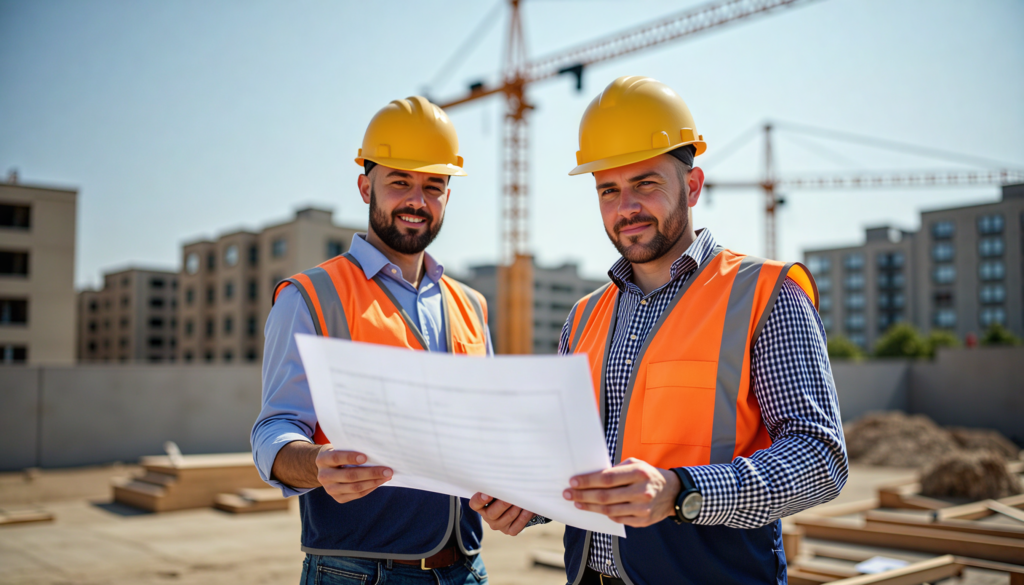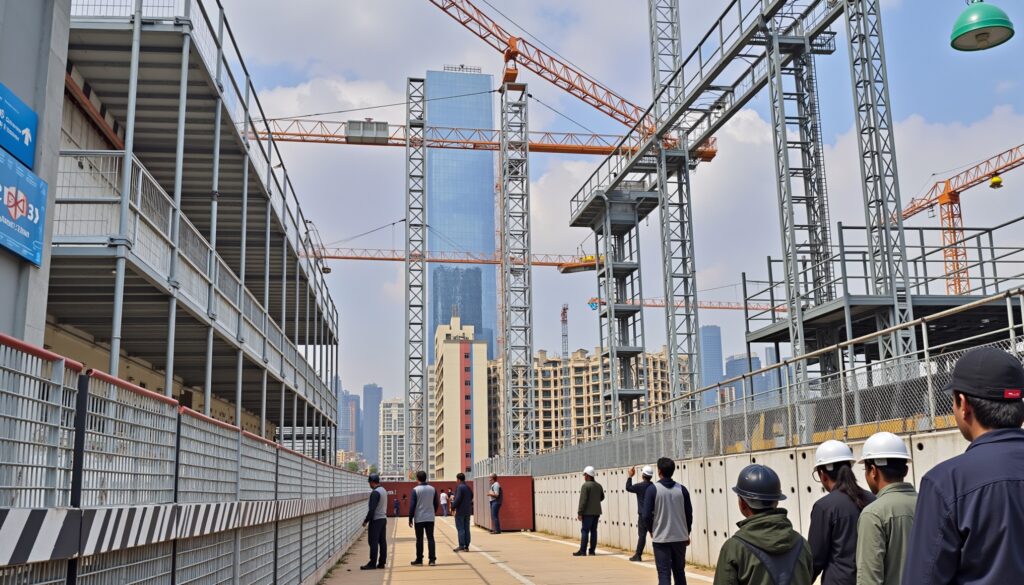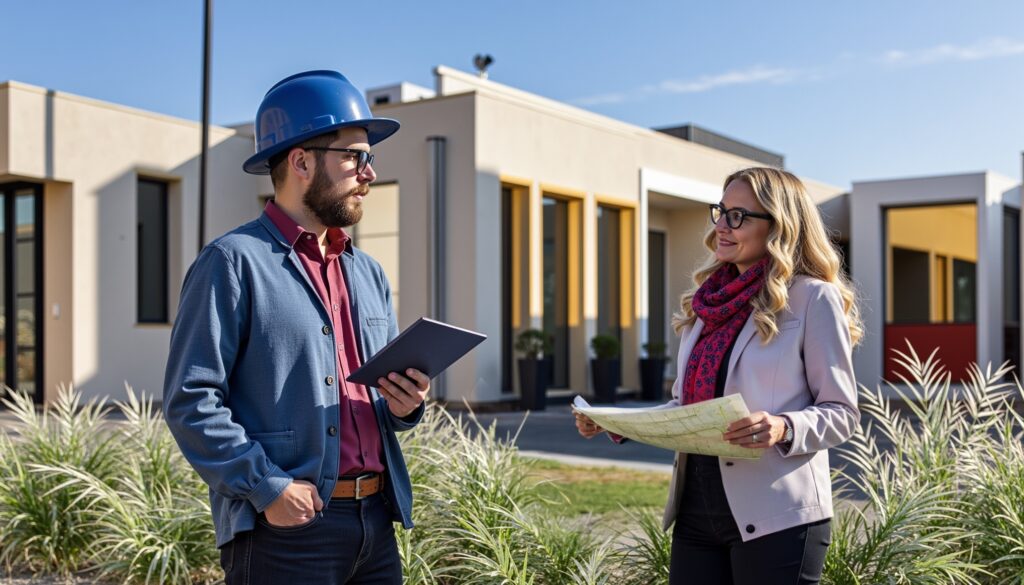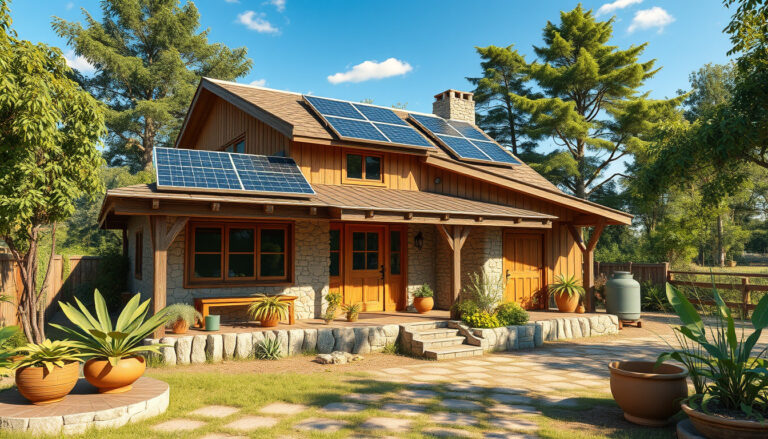Building code compliance is a crucial aspect of any construction project.
Homeowners and contractors alike must navigate a myriad of regulations designed to ensure safety, functionality, and sustainability in building practices.
Understanding the fundamentals of building codes and the importance of adhering to them not only prevents costly fines and legal issues but also safeguards the well-being of occupants.
This article delves into the significance of building code compliance, highlights common violations, and offers practical steps for ensuring adherence throughout the construction process.
Additionally, we explore how homeowners and contractors can effectively communicate with local building authorities and utilize available resources to stay updated on the ever-evolving regulatory landscape.
Whether you’re embarking on a new build or renovating an existing structure, mastering building code compliance is essential for a successful project.

Key Takeaways
- Building codes exist to ensure safety, health, and welfare in construction.
- Ignoring building code compliance can lead to costly penalties and project delays.
- Common violations include improper permits, inadequate fire safety measures, and structural deficiencies.
- Regular communication with local building authorities can streamline the compliance process.
- Utilizing online resources and tools is essential for staying informed about changing building codes.
Understanding Building Codes: An Overview
When venturing into any construction or renovation project, understanding building codes becomes essential for ensuring building code compliance.
Building codes are a set of regulations that dictate the standards for construction and design, addressing aspects such as safety, health, accessibility, and energy efficiency.
These codes vary widely not only from one country to another but also between local jurisdictions.
In essence, they serve as guidelines that help safeguard the well-being of the occupants and the integrity of the structure itself.
For instance, in Costa Rica, adhering to these regulations is crucial, as they outline everything from structural integrity to fire safety measures.
Engaging with local authorities and construction professionals familiar with the local regulations can ensure that your project meets all necessary standards, thereby avoiding costly fines, delays, or even the need for extensive renovations to meet compliance later.
The Importance of Building Code Compliance
Building code compliance is crucial for ensuring the safety, health, and welfare of the public when it comes to construction and renovation projects.
These codes establish the minimum standards for design, construction, alterations, and maintenance of buildings, affecting everything from structural integrity to fire safety and sanitation.
Adhering to building code compliance not only protects property owners from potential legal liabilities but also enhances the value of the property.
In regions like Costa Rica, where the real estate market is thriving, understanding and following building regulations can play a significant role in attracting buyers.
By complying with local codes, homeowners and developers can ensure their properties meet the necessary standards, thereby fostering trust and confidence among potential investors in Costa Rica’s vibrant real estate landscape.
‘Good buildings come from good people, and all problems are solved by good design.’ – Stephen Gardiner

Common Building Code Violations to Avoid
When embarking on a construction project, understanding building code compliance is critical to ensuring your project proceeds smoothly and legally.
Common building code violations to avoid include failing to obtain the necessary permits, which can lead to costly fines and the potential for enforced demolition of work completed without approval.
Additionally, neglecting fire safety measures, such as proper installation of smoke detectors and fire exits, poses significant risks not only legally but also to occupant safety.
Improper electrical work is another frequent violation, including inadequate grounding or circuit overloads, which can result in severe hazards.
Another area often overlooked is accessibility standards; buildings must meet specific requirements to accommodate all individuals, including those with disabilities, to promote inclusivity.
Lastly, ensuring that structures adhere to zoning laws relevant to location, such as height restrictions or designated usage categories, is essential for achieving building code compliance.
By being aware of these common pitfalls and diligently following regulations, you can mitigate risks and create a safe, functional, and legally sound building environment.
Steps to Ensure Compliance During Construction
When embarking on a construction project, ensuring building code compliance is essential for the safety and legality of your endeavor.
Begin by thoroughly researching local building codes that govern your specific area in Costa Rica, as these regulations can vary significantly across regions.
Engaging with a qualified architect or contractor who is familiar with the local codes can streamline this process.
They can help you interpret the requirements related to structural integrity, fire safety, plumbing, and electrical installations.
Additionally, it’s crucial to obtain all necessary permits before commencing construction, as working without permits can lead to legal ramifications and possible shutdowns.
Regular inspections by local authorities during different phases of the construction will also help ensure that all aspects of the project meet the stipulated codes.
Maintaining open communication with your construction team and local officials can further facilitate compliance, ensuring a smooth construction process that adheres to Costa Rica’s building standards.

How to Work with Local Building Authorities
Navigating the complexities of building code compliance in Costa Rica is essential for any real estate investor or homeowner.
The first step is to familiarize yourself with local regulations by consulting with the municipality where you intend to build.
Each region may have unique requirements and practices, so understanding these variances is crucial.
Engaging a local architect or contractor who is well-versed in Costa Rican building codes can immensely simplify the compliance process.
They will help ensure that your design meets all structural, safety, and environmental standards, effectively preventing potential delays or costly rework.
Additionally, maintaining open communication with local authorities will foster good relationships and facilitate any necessary inspections.
Being proactive about building code compliance not only streamlines your project but also enhances the value and appeal of your Costa Rica real estate.
Resources and Tools for Staying Up-to-Date on Codes
Staying informed about building code compliance is crucial for both homeowners and real estate professionals in Costa Rica, as these regulations can significantly impact property values and safety standards.
To ensure you’re always in the loop, consider utilizing various resources and tools available online.
Websites such as the Costa Rican National Building Code’s official portal provide comprehensive guidelines and updates on legitimate practices.
Additionally, local real estate associations or chambers of commerce often host seminars and workshops that focus on compliance issues, offering invaluable insights from experienced professionals.
Don’t overlook social media groups dedicated to Costa Rican real estate; they can be fantastic platforms for real-time information and community discussions regarding building codes.
Lastly, subscribing to newsletters from reliable construction and real estate blogs can keep you updated on any legislative changes that may affect construction and renovation projects, ensuring you remain compliant and informed.
Frequently Asked Questions
What are building codes and why are they important?
Building codes are regulations that set minimum standards for construction and safety of buildings.
They are important because they help ensure the safety, health, and welfare of occupants and the public by preventing structural failures and promoting quality construction.
What are some common building code violations that homeowners and contractors should avoid?
Common building code violations include improper electrical wiring, inadequate fire safety measures, failure to obtain necessary permits, and non-compliance with zoning laws.
Being aware of these can help prevent costly fines and construction delays.
What steps can I take to ensure compliance with building codes during construction?
To ensure compliance, you should familiarize yourself with local codes, hire qualified professionals, keep thorough documentation, conduct regular inspections, and communicate openly with all contractors and building officials involved.
How can I effectively work with local building authorities?
Effective communication is key.
Establish a good relationship by being proactive—submit necessary permits and documents promptly, ask questions about compliance, and be open to feedback during inspections.
What resources are available for staying up-to-date on building codes?
Resources include your local building authority’s website, the International Code Council (ICC), industry associations, and continuing education courses.
Online platforms and construction-related apps can also provide updates on code changes.





